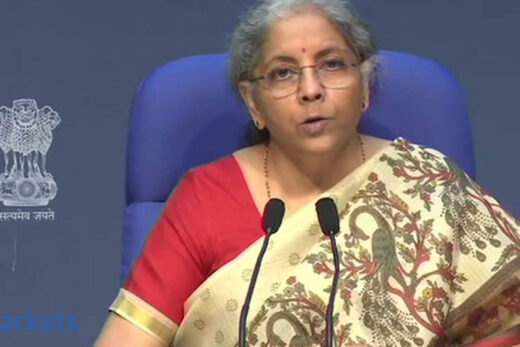NEW DELHI: The finance ministry on Wednesday imposed spending checks on several departments, ranging from education and home to telecom and power, as part of a cash management exercise due to the “evolving” Covid-19 situation and the Centre’s cash management requirements.
While these departments can at best spend 20% of their annual allocation during July-September, 19 departments, such as health, pharma, fertiliser, rural development, agriculture and farmers’ welfare, road transport and railways will not face any restrictions.
The move came as the latest numbers released by the Controller General of Accounts estimated the Centre’s fiscal deficit at Rs 1.23 lakh crore or 8.2% of the full year target for 2021-22 at the end of May as tax and non-tax revenues gathered strength and spending remained under control. During April-May, revenue receipts were estimated at 19.6% of the target, compared with 2.2% a year ago when the country was in the grip of a strict lockdown.
While the Centre had said that it wants to push spending, the focus is on asset-creating capital expenditure as well as priority sectors such as health and pharma.
Wednesday’s measures indicate that the government expects a higher-than-budgeted spend, although its stimulus measures are estimated to have only increased the spending by around Rs 1.5 lakh crore over the budget estimates. But it signals that by checking non-essential spending, the government will try to rein in fiscal deficit at 6.8% of GDP.
Last year, when its revenue flows had slowed, the government had resorted to similar measures, dividing ministries and departments into three heads.
Economists said the government had so far kept a tight leash on its finances in the first two months of the fiscal year but the deficit may be impacted due to the measures unveiled to provide relief to some sectors due to the second Covid-19 wave.
“On the whole, the budget has been well managed. The concerns going forward will be higher outlay on free food and fertiliser subsidy as well as other outlays under the FM relief programme,’’ said Madan Sabnavis, chief economist at
.




